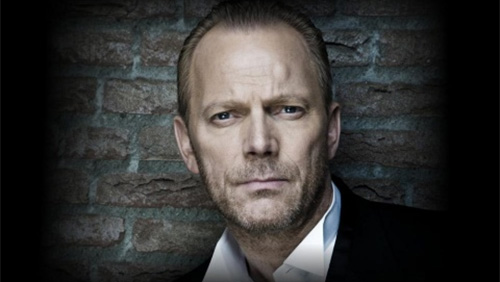Lee Davy sits down with the PokerStars Team Pro, Marcel Luske, to talk about his most recent challenge: to introduce nonClonableID technology into the poker industry to protect players from identity theft.
 How safe do you feel when you are playing online poker?
How safe do you feel when you are playing online poker?
I guess the answer to that question depends on habit.
If you play online poker a lot, or carry out a lot of financial transactions online, then I assume you feel very safe? If you don’t, then I expect there is a little bit of concern floating around in your cranium.
In truth, everyone should be concerned.
Counterfeiting, and identity theft, is a global problem that affects a multitude of industries and the gambling industry is one of them. Fortunately, for you, Marcel Luske, wants to do something about it.
When you hear the name Luske, you think of flying Dutchmen, mixed game titles and poker rule books, but the PokerStars Team Pro is also exceedingly interested in improving the security of poker player’s identities.
Luske is involved with a company called Bilcare Research, an innovation-led packaging solutions provider that has done some tremendous work in the pharmaceutical industry.
So what on earth does this have to do with poker?
The Flying Dutchman explains:
“PokerStars are doing a lot of work towards protecting their players. We get paid with a player’s card and we know that people can copy credit cards. There is a lot of counterfeiting in the world today. Another issue that I face is standing in long lines waiting to buy-in to events that should take minutes to sort out. So how can we make the process smoother, quicker for the players and more secure?
“I work with a company called Bilcare who have created an non-clonable card. If you lose it, it doesn’t matter. It is your card and your card only. If you lose it you just get a new one. It doesn’t matter who finds your old card, it will be no use to them. They use a process known as nonClonableID Technology and it’s that effective not even Bilcare can create two cards of the same kind.”
Effectively, what you are looking at is a unique personal identity card, created with a unique materials-based ‘fingerprint, that can even contain biometric data. These cards can be created to cater for individual company needs. So in the realm of poker, for example, they could contain your bankroll information.
Now let’s imagine you have a young impressionable teenager living in your home. The sort of teenager Sheldon Adelson, and his cronies at the Coalition to Stop Internet Gambling, believe will turn into some sad addictive nut job should they gain access to your account.
If you introduce this technology, then the teenager will grow up to be an ordinary happy, well-to-good American citizen, because he will never be able to access your account.
“I am not the inventor of this technology. I am the visionary who can see that the technology fits perfectly into the poker industry. We live in an age where we can fly to the moon, and yet we still don’t have an accurate system for our security. People have big egos. All credit card companies guarantee that they are the safest, but that’s not true. Unless they use the NCID technology then they are always going to be susceptible to hacking.
“My role is to present the vision to companies like PokerStars, and not only make the payment processing safer for people, but make it smoother, media friendly and giving it brand exposure for the companies that are using the system, which is very important for a company like PokerStars. I can predict you this. If PokerStars will not use it, other sites will use it. For an online poker site – this is a no brainer – and this is the angle I am coming from.
“It’s going to be very cool to see it on the tables as it can be used as a form of identification, and can also be used for your buy-ins. You simply turn up at the table, they swipe your card, it checks your data and you can buy-in – it’s so simple.
“The other day I heard someone say: ‘Yes, but I want rewards points for the comps in casinos.’ That’s very nice, and we don’t want to take that way, but if you think that’s more important than your identity; your personal data and money then we are not on the same page. You’re talking about a free meal? The two things are totally way out of proportion.”
“The organizers of poker games, like the WSOP, should be obligated to protect, not only the credibility of the company, but the players themselves, and Bilcare can do this.”